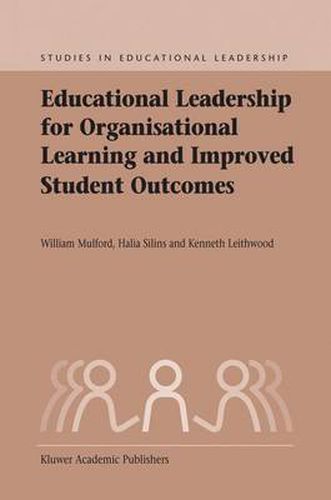Readings Newsletter
Become a Readings Member to make your shopping experience even easier.
Sign in or sign up for free!
You’re not far away from qualifying for FREE standard shipping within Australia
You’ve qualified for FREE standard shipping within Australia
The cart is loading…






This title is printed to order. This book may have been self-published. If so, we cannot guarantee the quality of the content. In the main most books will have gone through the editing process however some may not. We therefore suggest that you be aware of this before ordering this book. If in doubt check either the author or publisher’s details as we are unable to accept any returns unless they are faulty. Please contact us if you have any questions.
The change in paradigm in our field is away from the great man or woman theory of leadership and the teacher in his or her own classroom to the development of learning communities which value differences and support critical reflection and encourage members to question, challenge, and debate teaching and learning issues. How to achieve such learning communities is far from clear, but we believe the areas of problem-based learning (PBL) and organizational learning (OL) offer valuable clues. The indications are that the successful educational restructuring agenda depends on teams of leaders, whole staffs and school personnel, working together (i.e., OL) linking evidence and practice in genuine collaboration (i.e., PBL). The book is unique in that it is both about and uses these two concepts. The book is made up of four sections: 1. An introductory rational in which the case for using only quality evidence in school reform efforts is argued. Results from a quality research project are then presented. These results are organised around six questions: The section concludes with a plea that given the accumulation and consistent quality of the evidence from across systems and countries, we no longer need to involve ourselves with just impressions of effective leadership. We have a way forward that links leadership to organisational learning and improved student outcomes. 2. Advice for using the book. The reasons for the choice of problem-based learning as the vehicle for the professional development materials that form the major part of this book are detailed. Suggestions are then made for use of the book, including a one-day and two- day workshop, and advice on group development and warm-up activities for sue for such group development before moving to the problem-based learning package in Section 3; 3. A problem based-learning, evidence informed, professional development package for aspiring and actual school leaders based on real schools and their leaders. 4. A challenge. The final section provides refined versions of the diagnostic instruments used in the research and challenges readers to use them in their own schools. The book concludes with the references used and a list of other readings.
$9.00 standard shipping within Australia
FREE standard shipping within Australia for orders over $100.00
Express & International shipping calculated at checkout
This title is printed to order. This book may have been self-published. If so, we cannot guarantee the quality of the content. In the main most books will have gone through the editing process however some may not. We therefore suggest that you be aware of this before ordering this book. If in doubt check either the author or publisher’s details as we are unable to accept any returns unless they are faulty. Please contact us if you have any questions.
The change in paradigm in our field is away from the great man or woman theory of leadership and the teacher in his or her own classroom to the development of learning communities which value differences and support critical reflection and encourage members to question, challenge, and debate teaching and learning issues. How to achieve such learning communities is far from clear, but we believe the areas of problem-based learning (PBL) and organizational learning (OL) offer valuable clues. The indications are that the successful educational restructuring agenda depends on teams of leaders, whole staffs and school personnel, working together (i.e., OL) linking evidence and practice in genuine collaboration (i.e., PBL). The book is unique in that it is both about and uses these two concepts. The book is made up of four sections: 1. An introductory rational in which the case for using only quality evidence in school reform efforts is argued. Results from a quality research project are then presented. These results are organised around six questions: The section concludes with a plea that given the accumulation and consistent quality of the evidence from across systems and countries, we no longer need to involve ourselves with just impressions of effective leadership. We have a way forward that links leadership to organisational learning and improved student outcomes. 2. Advice for using the book. The reasons for the choice of problem-based learning as the vehicle for the professional development materials that form the major part of this book are detailed. Suggestions are then made for use of the book, including a one-day and two- day workshop, and advice on group development and warm-up activities for sue for such group development before moving to the problem-based learning package in Section 3; 3. A problem based-learning, evidence informed, professional development package for aspiring and actual school leaders based on real schools and their leaders. 4. A challenge. The final section provides refined versions of the diagnostic instruments used in the research and challenges readers to use them in their own schools. The book concludes with the references used and a list of other readings.